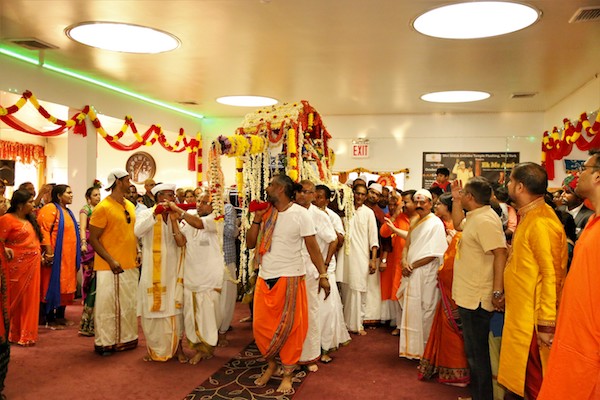
OTTAWA (TIP): In Canada‘s recent federal elections on April 28, 22 candidates of Punjab origin secured seats in the parliament, a slight increase from previous elections. These representatives, comprising members from both the Liberal and Conservative parties, contested from various regions across Canada.
The Punjabi-Canadian community, a key part of Canada’s South Asian population, played a particularly prominent role in this election. In 2021, 18 Punjabis had won, while in the 2019 federal polls, 20 of Punjab-origin were elected. This time, 16 sitting Punjab-origin MPs were seeking re-election, with many ridings seeing a direct contest between Punjabi candidates.
In Brampton, Punjabis won five seats: Liberal Party’s Ruby Sahota defeated Conservative Party’s Amandeep Judge from Brampton North, while Liberal candidate Maninder Sidhu defeated Conservative Party’s Bob Dosanjh from Brampton East and Amandeep Sohi of the Liberal Party defeated Conservative Taran Chahal from Brampton Centre. Sukhdeep Kang of the Conservative Party defeated Liberal candidate Sonia Sidhu from Brampton South and Amarjeet Gill of the Conservative Party defeated sitting minister Kamal Khera from Brampton West. Prominent Liberal Party winners of Punjab origin are: Anita Anand from Oakville East, Bardish Chagger from Waterloo, Anju Dhillon from Dorval Lachine, Sukh Dhaliwal from Surrey Newton, Iqwinder Singh Gaheer from Mississauga Malton, Randeep Sarai from Surrey Centre, Gurbax Saini from Fleetwood Port Kells, Param Bains from Richmond East Steveston.
Conservative Party winners of Punjab-origin include Jasraj Hallan from Calgary East, Dalwinder Gill from Calgary McKnight, Amanpreet Gill from Calgary Skyview, Arpan Khanna from Oxford, Tim Uppal from Edmonton Gateway, Parm Gill from Milton East, Sukhman Gill from Abbotsford South Langley, Jagsharan Singh Mahal from Edmonton Southeast and Harb Gill from Windsor West.
Pro-Khalistan leader and New Democratic Party (NDP) candidate Jagmeet Singh, however, suffered a setback as he lost Burnaby Central in British Columbia, finishing third with less than 19% of the vote share, trailing both the Liberal Party’s Wade Chang and the Conservative Party’s James Yan. He also led the NDP to a devastating defeat, with the party on track to win just seven seats — losing 18 compared to the 2021 federal election. It means the party is set to lose its official party status in the House of Commons. The NDP’s support dropped by 12 percentage points, down to just 6% in this federal election.
Pierre Poilievre’s Conservative Party had been on track to win the vote but US President Donald Trump’s attacks, combined with the departure of unpopular former prime minister Justin Trudeau, transformed the race. Carney, who replaced Trudeau as Canadian PM just last month, convinced voters that his experience in managing economic crises made him the ideal candidate to defy Trump.
Carney’s Liberals secured control of Canada’s parliament but may fall just short of a majority. That will require making deals with smaller parties but still marks an extraordinary comeback for the Liberals, who earlier this year looked headed for a wipeout.
Carney led the Bank of Canada through the 2008-09 financial crisis and headed the Bank of England through the turmoil surrounding the 2016 Brexit vote.
Trudeau’s departure was crucial to the Liberal win, which capped one of the most dramatic turnarounds in Canadian political history.
On January 6, the day Trudeau announced he would resign, the Conservatives led the Liberals by more than 20 points in most polls, as public anger over soaring costs mounted after Trudeau’s decade in power.
Carney distanced himself from Trudeau throughout the campaign.
(Source: PTI)





Be the first to comment